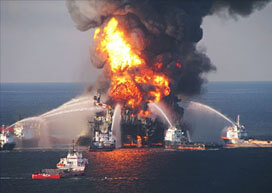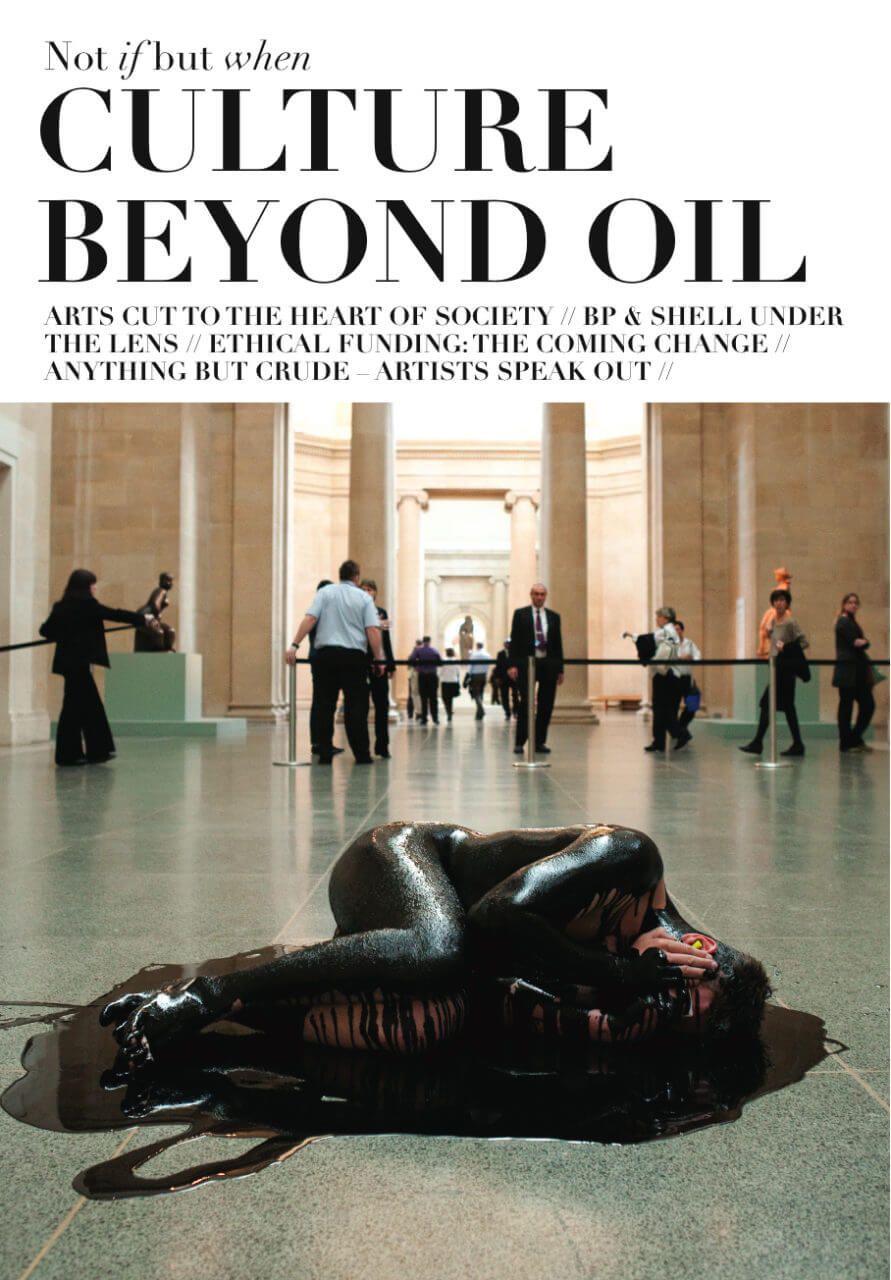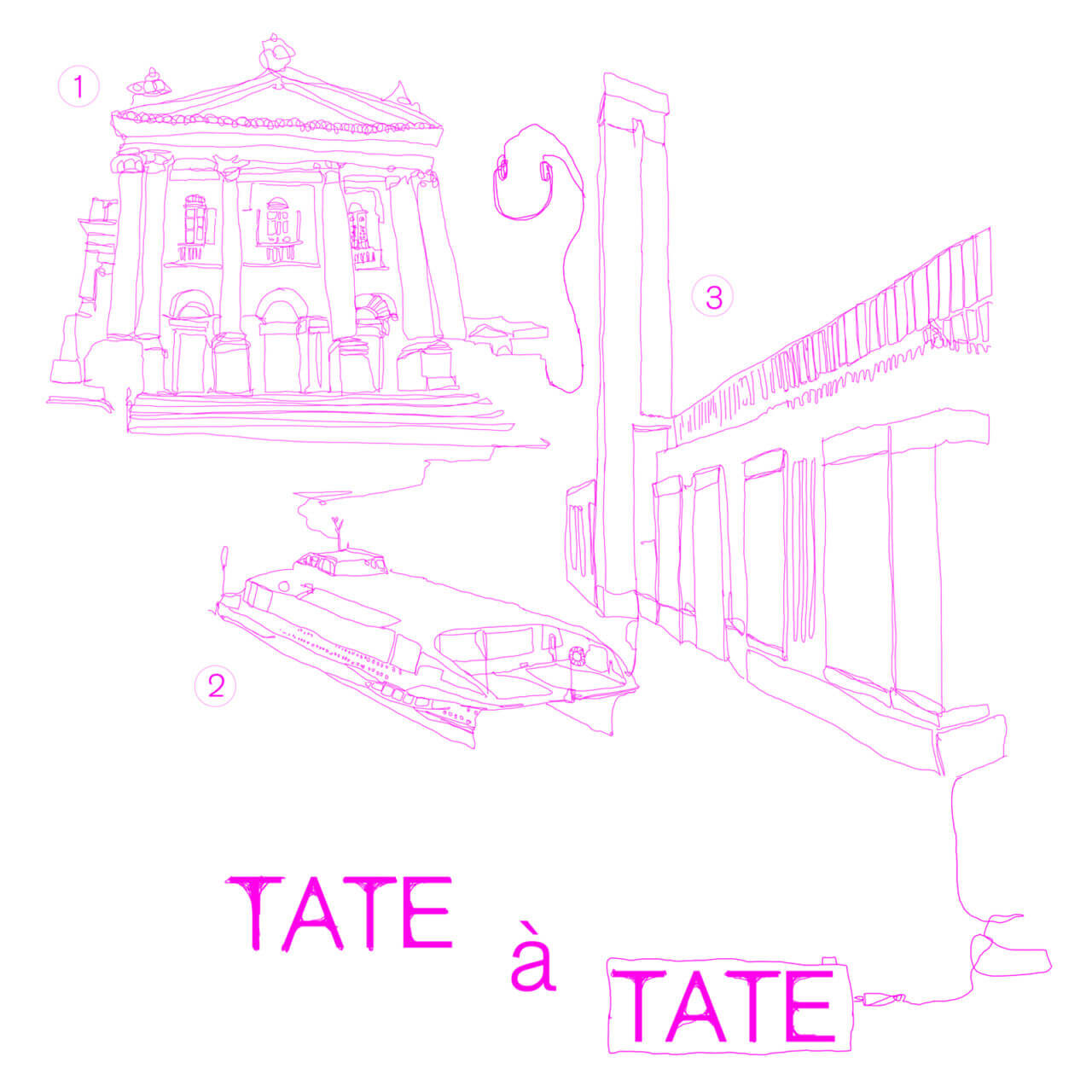The BP disaster civil trial was due to start this morning in New Orleans. It has now been delayed until next Monday 5th March while BP continues to attempt to settle out of court with over 116,000 plaintiffs this week. The trial is different to the criminal charges also being readied against the company. If it goes ahead, it will see the court decide whether BP staff acted with gross negligence, which would set a maximum penalty of $17.5bn instead of $4.5bn.
The Gulf of Mexico catastrophe, although often referred to by commentators as the worst maritime environmental disaster in history, is still largely thought of as ‘the 87 day oil spill’ that happened in 2010 and is now over. But for communities and ecosystems impacted, it could be said there is no end point – particularly in this case, where the use of the solvent COREXIT in the so-called clean-up process has had massive human health impacts and made waters toxic for sea life.
This is the definitive Deepwater Horizon image: the rig in flames, the multi-pronged attempt to firefight.
Yet the points of ongoing impact and networks of both complicity and repercussions stretch around the world from this point in the North Atlantic. Since April 2010, Platform has focused on drawing these links.
In 2010 we drew comparisons between the attention paid to BP’s disaster in the US compared to Shell’s ongoing impacts in the Niger Delta, and published reports on the recklessness of deepwater drilling in the North Sea (Off the Deep End) and in the Arctic (Arctic Anxiety).
Platform has continued to examine the role of oil financiers banks, insurers and pension funds, taking the issue to AGMs and creating a piece of site specific theatre in the City of London. The Platform Promenade leads participants through an oily web of relationships and impacts of the Gulf catastrophe from the Royal Bank of Scotland to Tate Modern.
The role of cultural institutions in the attempted BP clean-up operation are being critiqued challenged by a whole series of works, including the recently published ‘Not If But When: Culture Beyond Oil’
and the upcoming Tate á Tate Audio Tour.
We’re seeking to re-visualise the BP disaster beyond the iconic image of an explosion, to tease out the narratives of who has gained, who has lost, who has survived and who is still struggling to do so since the initial spill that continues as a catastrophe for many. The coming week will tell how far BP is held accountable for this ongoing disaster. A friend in the US, activist and researcher Antonia Juhasz (author of Black Tide, who features in Tate á Tate), commented this morning:
“My contacts are very wary of a settlement: they want their day in court, they want the findings to be made public, and they dont trust BP or the Feds to get them a good deal.”


